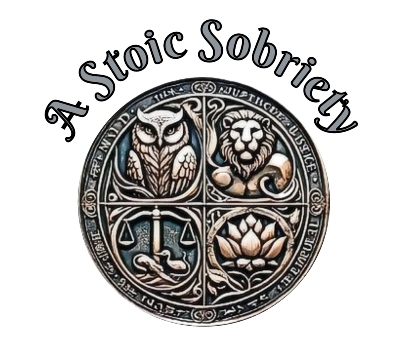AA Step 5 Guide: Admitting Wrongs & Finding Freedom
Welcome to a guide for working on the 5th Step. Having the courage to complete the 4th Step is undoubtedly cause for a pat on the back. That was a heavy lift in preparation for the rest of our journey. Step 5 of Alcoholics Anonymous states: “Admitted to God, to ourselves, and to another human being the exact nature of our wrongs.”
Bill Wilson, co-founder of AA, often emphasized the transformative power of Step 5. He shared his experience of admitting his wrongs to another person, describing it as a turning point in his recovery. In Alcoholics Anonymous Comes of Age, Bill wrote, “This was my first conscious contact with God as I understand Him. And I was convinced that if I could do this, my dark past could be the greatest asset I had.”
In Step 5, we share our fourth step inventory with another person and, by doing so, open the door to self-awareness, humility, and healing. The purpose of Step 5 is to confront the secrets and shame that have weighed us down. As stated in the Big Book of Alcoholics Anonymous, “We pocket our pride and go to it, illuminating every twist of character, every dark cranny of the past.”
Why is the 5th Step Important?
Addiction often thrives in secrecy and isolation. By admitting our wrongs to another person, we break down those walls of secrecy and take a brave step toward authenticity and connection. This step requires honesty, humility, and courage to face the reality of our behavior and take responsibility for it.
This step helps us release the burden of guilt and shame we’ve been carrying, making room for growth and healing. Step 5 is not about self-condemnation; it’s about self-acceptance and the willingness to change. This is why I encourage you to do your best in step four. The more we get out into the open, the more guilt and shame we can shed. We must remember that guilt and shame have fueled many relapses.
Additionally, the Fifth Step is a powerful antidote to denial. It’s easy to deceive ourselves about the extent of our wrongs, but sharing them with someone else brings clarity and accountability. We are forcing ourselves to face reality head-on, which is crucial for recovery. Guilt and shame have fueled many a relapse.
A Practical Approach to Working Step 5: Preparing and Doing
This work has two primary areas: getting prepared and doing it. We will dig into each of these now.
The Preparation
Preparation is critical for this step. Going into it without good preparation may disappoint us with the experience and outcome. Doing the job to prepare ourselves for the experience can give us confidence and courage before doing the work.
1) Find the Right Confidant: We first want to identify the person with whom we will share our 5th step work and ask if they would be a willing participant. This could be a sponsor, trusted friend, therapist, or anyone we feel safe with who can offer nonjudgmental support.
For most, I recommend a sponsor who has done the fifth step work themselves and with others or using an addiction-oriented therapist. While a close, trustworthy friend will do, a sponsor or therapist has experience with these exercises and brings that experience and empathy into play to make the work as fruitful as possible.
I took my first fifth step with a Pastor who was dedicated to helping us recover from substance abuse. He did me a massive favor upfront by telling me there was no way I could tell him anything he had not heard before. Others have done all this “bad” stuff, and I am not unique. His message was clear: get your ego out of the way, and let’s get on with it. The key is to find someone who will listen with empathy and understanding.
2) Review Our Step 4 Moral Inventory: Next, we need to prepare ourselves to do the work. First, reflect on your fourth-step inventory, where you listed your resentments, fears, and wrongdoings. There may be a time gap between steps, so a review may be helpful. Keeping our inventory fresh in mind will make sharing more straightforward and thorough.
Secondly, some mental preparation is worthwhile. Place the following thoughts in your mind before you do the work. This is the time to be completely honest with ourselves and the person we’re sharing with. Don’t hold back or sugarcoat anything; this step is about embracing vulnerability and truth. The challenging work is done as everything we could identify is on paper. You have chosen someone you are most comfortable sharing with. This is the time to muster up the courage to bring all this work home.
3) Overcome Our Fears of Doing This Step: Step 5 can be a struggle because it involves exposing parts of ourselves that we are not proud of, and it feels better to leave those parts buried. The longer-term relief of releasing our burdens far outweighs the temporary discomfort of sharing them.
By opening up about our wrongs, we can embrace this discomfort as a sign of growth. Vulnerability is a strength, not a weakness. Also, remember, you are not alone! Everyone in AA who has worked the steps has gone through this process.
The emotional intensity of this step can be overwhelming. If you struggle, take breaks and practice self-care. The 5th Step work is not on a timer. If it gets too intense, shelve it for a bit, but make sure not to avoid jumping back in.
Doing the Work
We covered the prep work. It will not take long to complete and can significantly affect how we feel about the next part of the work. Next, we will get down to the nuts and bolts of working on the fifth step.
1) Start the Conversation: Explaining why you’re doing this is helpful to start the conversation. This can help remind yourself and the other person of the importance of this step in your recovery journey. Even if you are working with a sponsor familiar with the steps, it is still a good way to set the stage for the conversation.
2) Take the Necessary Time: Take the time you need to share your story. It might be emotionally taxing, so pace yourself and take breaks if necessary. The worst thing one can do is keep their face buried in their list and rush through reading it.
When you’re ready to share, you might feel a mix of emotions—fear, anxiety, relief, maybe even liberation. That’s completely normal. The important thing is to take your time. There’s no rush. The other person has agreed to take this time, so it is not a burden for them.
While you may feel uncomfortable going through this, the discomfort is a sign that you are getting to the point of the step. Rushing through it without feeling is only robbing oneself of the healing nature of this step.
3) Honestly and Openly Share Your 4th Step Inventory: Next, you will start sharing your inventory. Here, I recommend making eye contact on and off throughout the conversation. The person you are sharing with may share a friendly nod or encouraging word, giving us confirmation things are going well and keep going. By avoiding eye contact, we may miss this encouragement and the human connection vital to working this step.
Step through the list, item by item, you made in the fourth step. Talk about each of your resentments, fears, and wrongdoings. You might uncover more insights about yourself as you go through the list. Allow these realizations to come and acknowledge them.
As you wrap up the conversation, the person you’re sharing with might offer insights or perspectives or listen. Their feedback can be incredibly valuable, offering new ways of looking at your experiences and behaviors. As emotions are typically a bit raw at this point, regardless of the nature of the feedback, it is best to thank the person for hearing your fourth step and their feedback. Process their input later.
The Parallel Principles of Stoicism
Stoicism, an ancient philosophy founded in Greece and later refined in Rome, offers meaningful insights that align with the principles of Step 5. The Stoics emphasize practicing honesty and humility and courageously addressing things within our control. These ideas resonate deeply with the self-reflection and accountability inherent in Step 5.
1) Honesty and Self-Examination: AA and Stoicism stress the importance of rigorous honesty. In Meditations, Marcus Aurelius reinforces the Stoic ideal of always seeking truth, “If someone is able to show me that what I think or do is not right, I will happily change, for I seek the truth, by which no one was ever truly harmed.” Doing our work on this step shows we dare to strive for truth.
Seneca advises from a slightly different angle, “The greatest obstacle to living is expectancy, which hangs upon tomorrow and loses today. You are arranging what lies in Fortune’s control and abandoning what lies in yours.” What Seneca means by expectancy is our tendency to put off life and happiness to the future. By being honest in our self-examination, we can identify those elements of life within our control that may keep us from living our lives fully today.
Lastly, admitting the “exact nature of our wrongs” requires self-examination, a core practice in Stoicism. Epictetus teaches us to regularly review our actions: “What did I do wrong? What did I do right? What left undone?” This daily review aligns closely with the moral inventory of Step 4 and the sharing process of Step 5.
- Facing Fear with Courage
As noted before, Step 5 can feel intimidating. Often, we fear judgment or rejection when sharing our faults with another person. Stoicism teaches us to face fear with courage by focusing on what we can control. Seneca writes in Letters to Lucilius, “We suffer more often in imagination than in reality.” The fear of Step 5 is often worse in our minds than in reality, and sharing our inventory usually brings relief rather than rejection.
- Humility and Acceptance
Admitting our wrongs requires humility—a willingness to see and accept ourselves as we are. In AA, humility is essential to recovery. It is so critical that Bill W wrote in Twelve Steps and 12 Traditions, “Without some degree of humility, no alcoholic can stay sober at all.”
The stoics also put a high value on humility. There are many references throughout stoic writings regarding the need for humility. My favorite quote is from Epictetus, “If anyone tells you that a certain person speaks ill of you, do not make excuses about what is said of you, but answer: ‘He was ignorant of my other faults, else he would not have mentioned these alone.’” Witty and humble is a great combination.
Conclusion
Step 5 is a wholehearted act of self-honesty and courage, essential for anyone seeking lasting recovery. We free ourselves from the chains of secrecy and shame by admitting our wrongs to God, ourselves, and another person. The principles of Stoicism—honesty, humility, and courage—offer valuable guidance in this process, reminding us that facing the truth is the path to freedom.
As Marcus Aurelius wisely said, “The impediment to action advances action. What stands in the way becomes the way.” Step 5 may feel like an obstacle but is also the gateway to healing, growth, and peace.
So, take a deep breath, gather your courage, and step into the light of truth. You’ve got this! And remember, you are not alone on this journey. A whole community of support surrounds you, cheering you on every step of the way.
Resources
5th Step – Twelve Steps and Twelve Traditions – Audio Version
5th Step – Twelve Steps and Twelve Traditions – PDF Version



